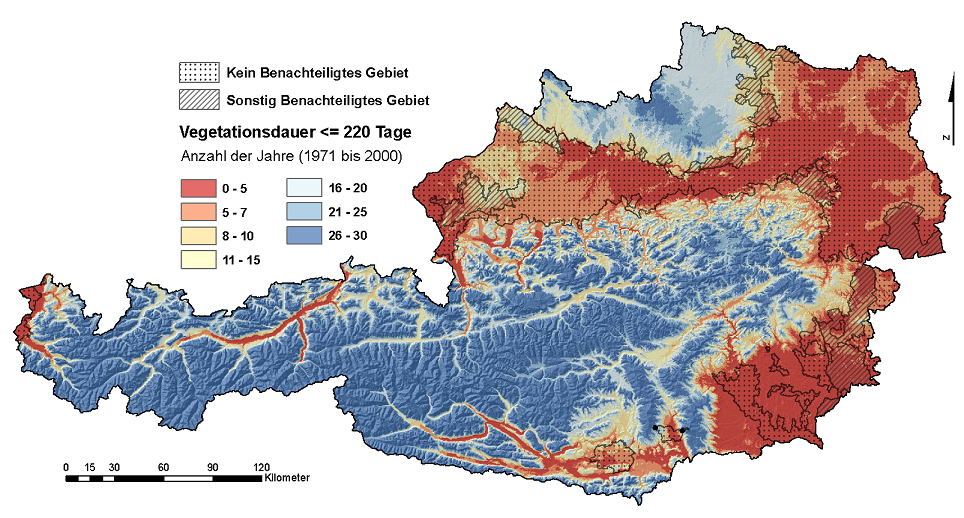- Project manager institute: Institute 2 - Plant production
The climatic development in recent decades shows, on the one hand, a significant lengthening of the growing season and, on the other hand, an increase in dry periods. If the duration of the growing season increases due to higher temperatures, the number of non-dry days also increases, since water stress does not occur in the marginal areas (March and November) in Austria and this therefore only leads to a higher number of non-dry days . The higher temperatures in the summer months are accompanied by a reduction in water availability, although this does not have a significant impact on the reduction in non-dry days due to the extension of the growing season.
Schaumberger, A. (2009): Investigation of climatic demarcation criteria for the disadvantaged area of Austria, final report, HBLFA Raumberg-Gumpenstein, Irdning, 48 p.







